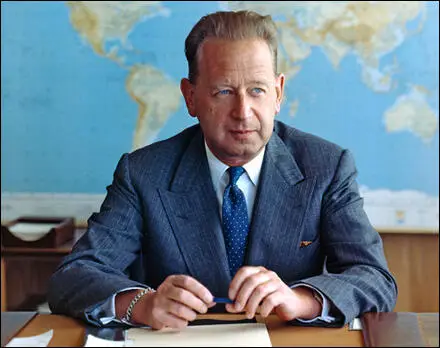On this day on 18th September
On this day in 1544 King Henry VIII's troops occupy Boulogne. During his absence Henry appointed his wife Catherine Parr as regent-general.
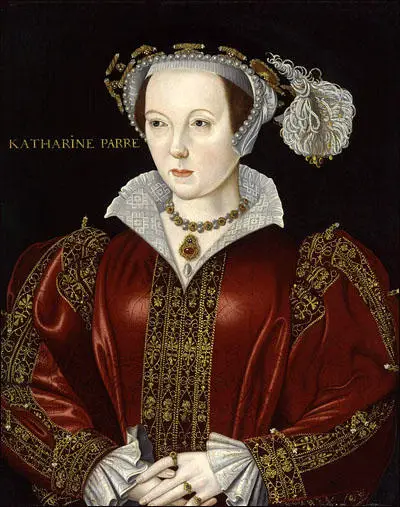
On this day in 1811 the British East India Company force led by Gilbert Elliot-Murray-Kynynmound conquered Java, part of the Dutch East Indies.
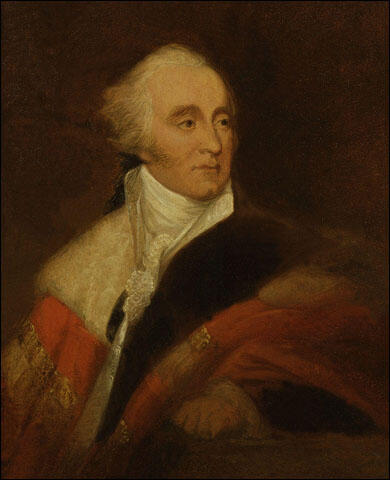
On this day in 1838 the Anti-Corn Law League was established in Great Britain. The economic depression of 1840-1842 increased membership of the Anti-Corn Law League and Richard Cobden and John Bright spoke to very large audiences all over the country.
A Corn Law was first introduced in Britain in 1804, when the landowners, who dominated Parliament, sought to protect their profits by imposing a duty on imported corn. During the Napoleonic Wars it had not been possible to import corn from Europe. This led to an expansion of British wheat farming and to high bread prices.
Farmers feared that when the war came to an end in 1815, the importation of foreign corn would lower prices. This fear was justified and the price of corn reached fell from 126. 6d. a quarter in 1812 to 65s. 7d. three years later. British landowners applied pressure on members of the House of Commons to take action to protect the profits of the farmers. Parliament responded by passing a law permitting the import of foreign wheat free of duty only when the domestic price reached 80 shillings per quarter (8 bushels). During the passing of this legislation, Parliament had to be defended by armed troops against a large angry crowd.
This legislation was hated by the people living in Britain's fast-growing towns who had to pay these higher bread prices. The industrial classes saw the Corn Laws as an example of how Parliament passed legislation that favoured large landowners. The manufacturers in particular was concerned that the Corn Laws would result in a demand for higher wages.
In 1828 William Huskisson sought to relieve the distress caused by the high price of bread by introducing a sliding scale of duties according to price. A trade depression in 1839 and a series of bad harvests created a great deal of anger towards the Corn Laws.
In October 1837, Joseph Hume, Francis Place and John Roebuck formed the Anti-Corn Law Association in London. The following year Richard Cobden joined with Archibald Prentice to establish a branch of this organisation in Manchester. In March 1839 Cobden was instrumental in establishing a new centralized Anti-Corn Law League. Cobden was now able to organize a national campaign in favour of reform.
Cobden was a friend of John Bright and suggested he should join the League. Bright agreed and over the next few years he toured the country giving speeches on the need to reform the Corn Laws. Bright was an outstanding orator and he drew large crowds wherever he appeared. In his speeches Bright attacked the privileged position of the landed aristocracy and argued that their selfishness was causing the working class a great deal of suffering. Bright appealed to the working and middle classes to join together in the fight for free trade and cheaper food.
In 1841 General Election the leader of the Anti-Corn Law League, Richard Cobden became the MP for Stockport. Although Cobden continued to tour the country making speeches against the Corn Laws, he was now in a position to constantly remind the British government that reform was needed.
The economic depression of 1840-1842 increased membership of the Anti-Corn Law League and Richard Cobden and John Bright spoke to very large audiences all over the country. By 1845 the League, with support from wealthy industrialists such as Peter Taylor and Samuel Courtauld, was the wealthiest and best organised political group in Britain.
The failure of the Irish potato crop in 1845 and the mass starvation that followed, forced Sir Robert Peel and his Conservative government to reconsider the wisdom of the Corn Laws. Irish nationalists such as Daniel O'Connell also became involved in the campaign. Peel was gradual won over and in January 1846 a new Corn Law was passed that reduced the duty on oats, barley and wheat to the insignificant sum of one shilling per quarter became law.
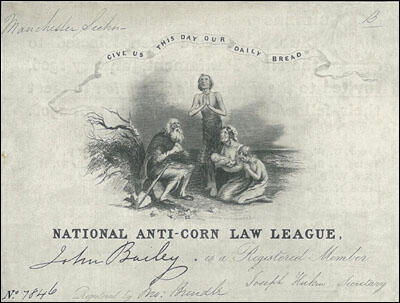
On this day in 1851 the first issue of The New York Daily Times was published (2 cents a copy). The main objective of the newspaper was to report the news in a restrained and objective fashion. It enjoyed early success by appealing to a cultured, intellectual readership instead of a mass audience.
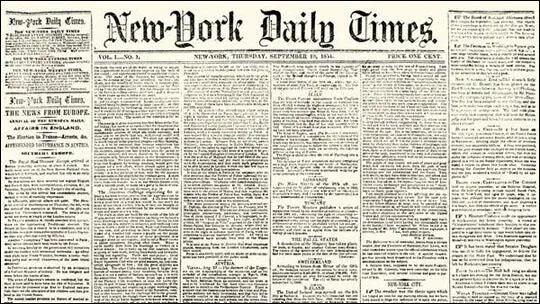
On this day in 1864 General John Bell Hood's began his Tennessee campaign (also called The Franklin–Nashville Campaign), in the American Civil War.
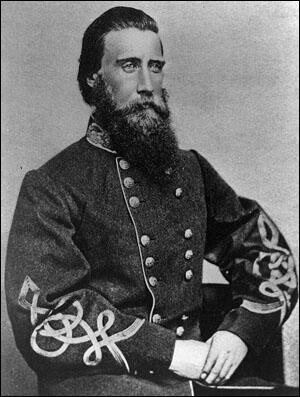
On this day in 1895 Booker T. Washington delivers 'Atlanta Compromise' address. Washington's conservative views made him popular with white politicians who were keen that he should become the new leader of the African American population.
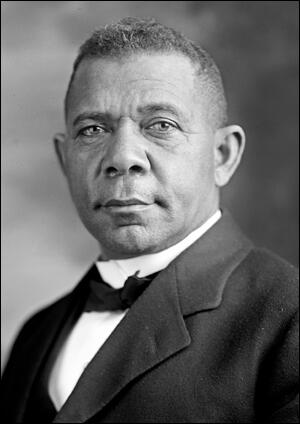
On this day in 1897 Leslie Morshead was born in Ballarat Victoria, Australia. He worked as a schoolmaster until joining the Australian Corps in 1914. During the First World War he served in Gallipoli and the Western Front in France. By the end of the war he had been mentioned six times in dispatches and had reached the rank of lieutenant colonel.
After the war Morshead went into business and became Sydney manager for the Orient Line. He remained in contact with the army by heading a reserve battalion.
On the outbreak of the Second World War Morshead was given command of the 18th Brigade and was sent to North Africa.
In February 1941 Morshead was appointed commander of the recently formed 9th Australian Division. When General Archibald Wavell captured the port of Tobruk in Libya from the Italian Army he gave Morshead the responsibility of defending this vital forward supply base against the enemy. Morshead successfully held the port for eight months and on 4th December, 1941, General Erwin Rommel decided to abandon the siege of Tobruk.
When General Thomas Blamey returned to Australia in March 1942 Morshead was given command of the Australian Imperial Forces and took part in the famous victory at El Alamein.
Under threat from a possible invasion by the Japanese Army Morshead was recalled to Australia. In 1944 Morshead was promoted to commander of the 1st Australian Corps and sent to New Guinea. The following year he joined General Douglas MacArthur in the liberation of Borneo.
Leslie Morshead, who returned to civilian life after the Second World War on 26th September 1959. His funeral was one of the largest in Australia's history.
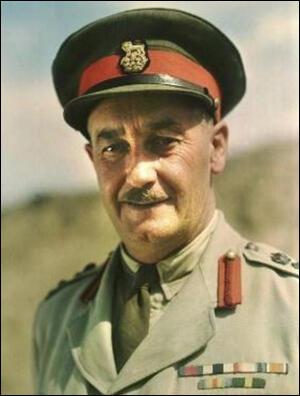
On this day in 1898 Lord Kitchener's ships reach Fashoda, in an attempt to reconquer the Sudan. The battle began in the early morning. The British artillery opened fire, inflicting severe casualties on the Ansar forces before they even came within range of the Maxim guns. The frontal attack ended quickly, with around 4,000 Ansar casualties. It has been claimed that none of the attackers got closer than 50m to the British trenches. Later that day Kitchener was able to take control of Omdurman.
Winston Churchill wrote: "Thus ended the Battle of Omdurman - the most signal triumph ever gained by the arms of science over barbarians. Within the space of five hours the strongest and best-armed savage army yet arrayed against a modern European Power had been destroyed and dispersed, with hardly any difficulty, comparatively small risk, and insignificant loss to the victors."
Paul Halsall has pointed out: "The Dervish Army, approximately 52,000 strong, suffered losses of 20,000 dead, 22,000 wounded, and some 5,000 taken prisoner - an unbelievable 90% casualty rate! By contrast, the Anglo-Egyptian Army, some 23,000 strong, suffered losses of 48 dead, and 382 wounded - an equally unbelievable 2% casualty rate, thus showing the superiority of modern firepower!"
Kitchener had returned home to England to a mixed welcome. As Keith Neilson explained: "As he rose Kitchener provoked continued resentment and criticism. Anti-imperialists hated his imperial victories and triumphs. Some British officers were jealous of his success, and for varied reasons there was among senior officers much suspicion of him... Despite radicals' and others' criticism of Kitchener's behaviour, particularly his desecration of the Mahdi's tomb at Omdurman and his taking of the latter's skull, the British public lionized the sirdar... and he was frequently mobbed when he appeared in public."
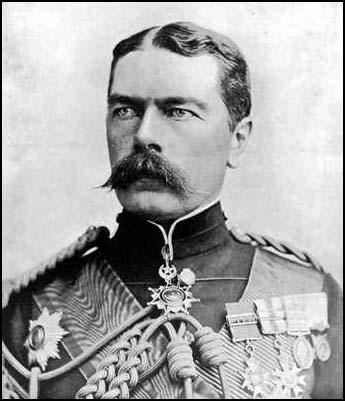
On this day in 1901 Harry Naujoks was born in Hamburg. After leaving school he became a boilermaker and joined the German Communist Party (KPD) in 1919. Naujoks was active in politics and was involved in the struggle against the rise of Adolf Hitler and the National Socialist German Workers Party (NSDAP).
On 27th February, 1933, someone set fire to the Reichstag. Several people were arrested including a leading, Georgi Dimitrov, general secretary of the Comintern, the international communist organization. Dimitrov was eventually acquitted but a young man from the Netherlands, Marianus van der Lubbe, was eventually executed for the crime. As a teenager Lubbe had been a communist and Hermann Goering used this information to claim that the Reichstag Fire was part of a KPD plot to overthrow the government.
Adolf Hitler gave orders that all leaders of the German Communist Party (KPD) should "be hanged that very night." Paul von Hindenburg vetoed this decision but did agree that Hitler should take "dictatorial powers". KPD candidates in the election were arrested and Goering announced that the Nazi Party planned "to exterminate" German communists. Naujoks was one of those arrested and sent to a local concentration camp. Eventually Naujoks was sent to Sachsenhausen near Oranienburg.
He later recalled what life was like in the camp: "Every SS guard had to be greeted by the prisoners. When a prisoner walked by an SS guard, six paces beforehand, the prisoner had to place his left hand on the seam of his trousers and with his right hand, quickly doff his cap and lay it on the seam of his trousers on the right-hand side. The prisoner had to walk by the guard while looking at him, as at attention. Three paces afterward, he was allowed to put his cap back on. This had to be done with the thumb pressed against the palm, the four fingers resting on the cap, pressed against the seam of the trousers. If this didn't happen quickly enough or the prisoner didn't snap to attention enough or his fingers weren't taut enough, or anything else happened that struck the SS guard as being insufficient, then one's ear was boxed, he had extra sports, or was reported."
There was a major problem of overcrowding in Sachsenhausen: "In normal occupancy, each barrack had 146 prisoners. This was true until mid-1938. After that, a third bed was added. Then the barrack occupancy was 180-200 men... In essence, this was case only in the first ring after 1938-1939... In other barracks, the overcrowding of the camp led to the beds being removed and the straw sacks were laid on the ground. There were also times where day rooms were covered with straw sacks at night; during the day, the straw sacks were stacked in the other room with the beds. In the large barracks, dubbed mass barracks, often 400 prisoners were jammed together."
Inmates had to wear a coloured symbol to indicate their category. This included political prisoners (red), convicts (greens), Jews (yellow), homosexuals (pink), Jehovah's Witnesses (violet) and what the Nazis described as anti-socials (black). The anti-social group included gypsies and prostitutes. The Schutzstaffel (SS) preferred those with a criminal record to be capos. As Hermann Langbein has pointed out: "As a rule the SS bestowed armbands on prisoners they could expect to be willing tools in return for their privileged status. As soon as German convicts arrived in the camps the SS preferred them to morally stable men." However, in 1939, Naujoks was appointed as senior camp inmate (Lageraltester).
In May 1942, Naujoks was ordered by Lagerführer Fritz Suhren to execute a fellow prisoner. He refused and was forced to stand next to the gallows during the hanging, which was made to be particularly slow and painful. Naujoks was discovered to be part of a camp resistance group and in November 1942, he and 17 other political prisoners were deported to Flossenbürg, a concentration camp under the control of the Greens. However, his earlier fairness was rewarded as Naujoks was told by one Green "In Sachsenhausen you treated as like comrades, and you can be sure that we shall treat you the same way here."
After the war, Naujoks was the chairman of the German Communist Party (KPD) in Hamburg. He was also chairman of the West German Sachsenhausen Committee and worked for the International Sachsenhausen Committee and the Union of Persecutees of the Nazi Regime.
Harry Naujoks died on 20th October, 1983. His wife, Martha Naujoks, used taped recordings of interviews with her husband to produce My Life in Sachsenhausen Concentration Camp (1987).
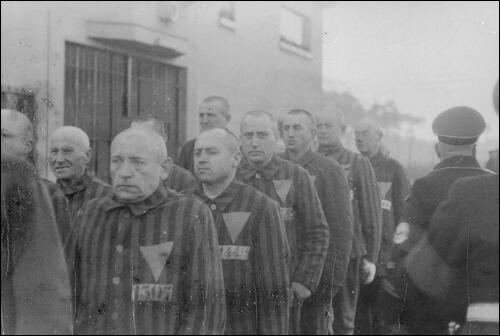
On this day in 1905 Franchot Tone was born at Niagara Falls. After an education at Cornell University, Tone joined the Group Theatre, a company formed in New York by Harold Clurman and Lee Strasberg. He appeared in Big Night and Success Story, and Strasberg rated him the best actor in the company.
In November 1932, Tone moved to Hollywood. He appeared in over fifty movies during the next fifteen years. By the late 1930s he was one of Hollywood's leading actors and appeared in some notable successes, including the Academy Award winning Mutiny on the Bounty (1935) and the highly acclaimed, Five Graves to Cairo (1943).
However, because of his left-wing views he was a victim of McCarthyism and had difficulty making films in Hollywood during the 1950s.He returned to the cinema with Advise and Consent in 1962 and followed it with In Harm's Way (1965) and Mickey One (1965).
Franchot Tone died on 18th September, 1968.
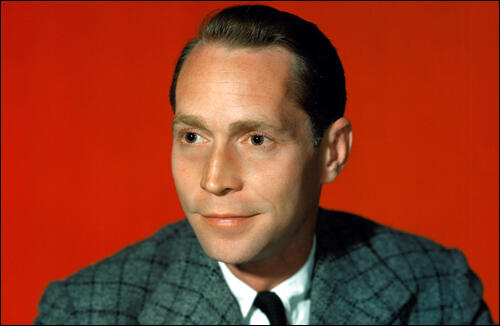
On this day in 1911 the Russian minister Peter Stolypin was shot in the Kiev Opera House. Stolypin died from his injuries on 18th September 1911. He was the sixth Minister of the Interior in a row to be assassinated.
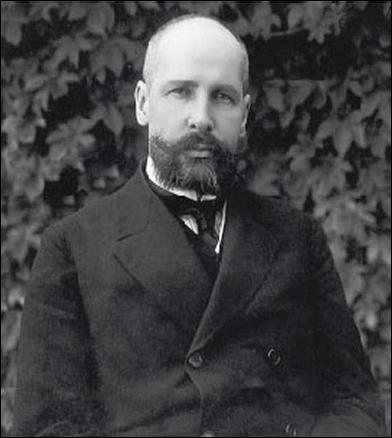
On this day in 1911 Dmitri Bogrov, shot Peter Stolypin, the Russian Minister of the Interior. He was a member of the Socialist Revolutionary Party but had been spying on his colleagues on behalf of Okhrana, the secret police and had carried out the assassination as an act of remorse.
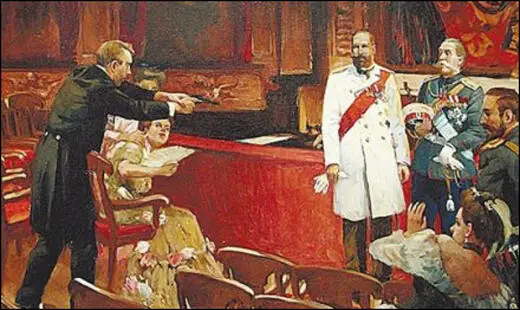
On this day in 1914 the Battle of Aisne ends with Germans beating French during the First World War. After the first battle at the Marne in September, 1914, the German Army was able to deploy its forces along the north bank of the River Aisne, a tributary of the Oise. The Chemin des Dames Ridge provided a long natural defensive position and the Germans began to dig in.
The French Army (5th and 6th) and the British Expeditionary Force (BEF) launched a frontal assault at the Aisne on 13th September. They initially won a singe bridgehead but a German counter-attack, drove the Allies back to the river. Fighting continued until 28th September when it was acknowledged that frontal infantry attacks on well-defended positions, would cause heavy casualties and was unlikely to gain a breakthrough.
The Aisne was the scene of two more important battles: 2nd Battle of the Aisne (16th April, 1917 - 9th May, 1917) and 3rd Battle of the Aisne (27th May, 1918 - 6th June, 1918).
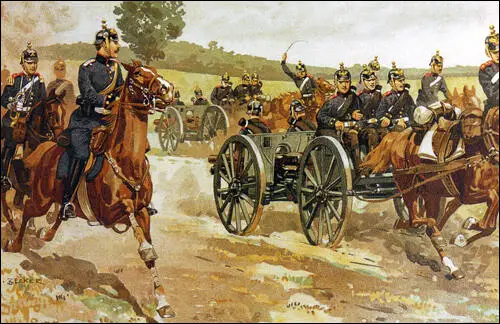
On this day in 1914 General Paul von Hindenburg named commander of German armies on the Eastern Front. On the outbreak of the First World War Hindenburg was recalled to the German Army and after being sent to the Eastern Front won decisive victories over the Russians at Tannenberg (1914) and the Masaurian Lakes (1915). Seen as the saviour of East Prussia, he was promoted to field marshal and on the 29th August 1916 became Chief of Staff of the German Army.
With the support of senior military officers and right-wing industrialists, Hindenburg and his quartermaster general, Erich von Ludendorff, formed what became known as the Third Supreme Command. This military-industrial dictatorship held power until 29th September 1918, when with defeat inevitable, the government of Germany was returned to the Reichstag.
Hindenburg retired from the German Army in October, 1918, but continued to take an active interest in politics. In 1925 Hindenburg replaced Friedrich Ebert as President of Germany. Re-elected in 1932 he did not oppose the rise of Adolf Hitler and in January 1933, appointed him Chancellor. Paul von Hindenburg was so popular with the German people that Hitler was unable to overthrow constitutional government until his death in 1934.
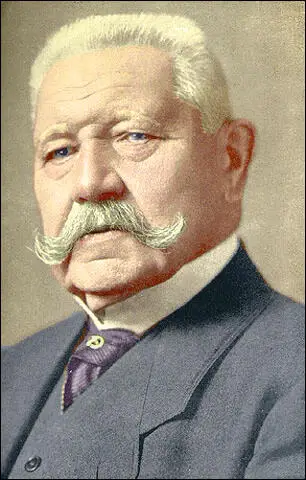
On this day in 1939, William Joyce ("Lord Haw-Haw") made his first Nazi propaganda radio broadcast. On 26th August, 1939, Joyce left England for Nazi Germany. Soon after arriving in Berlin he found work with the German Radio Corporation as an English language broadcaster. Joyce joined the 'German Calling' programme. A report in the Daily Express described the broadcaster as speaking the "English of the haw-haw, damit-get-out-of-my-way variety." It was not long before Joyce became known as Lord Haw-Haw.
Joyce continued to broadcast throughout the Second World War. In 1940 the Daily Mirror organized the Anti Haw Haw League of Loyal Britons and members pledged not to listen to these broadcasts. Other British subjects who took part in these broadcasts included John Amery, Railton Freeman, Norman Baillie-Stewart, Kenneth Lander and William Griffiths.
On 17th June, 1940, William Joyce broadcasted a message to the British public on Winston Churchill: "Mr Churchill said tonight that Britain now stands alone. Did he tell you that on 3rd September, 1939? On the contrary, then he said that Germany stood alone, to be throttled by the British blockade without even the sacrifice of a single British soldier. How many of the BEF, how many of the British Navy and the RAF have already been sacrificed only that your Prime Minister could tell you that you now stand alone? Was it worth it? Surely not. Surely the time has come to meet the bill, the bill that Mr Churchill and his accomplices ran up for you, and which you will be called upon to meet if you do not force your Government to meet it."
The BBC was asked to provide a report on William Joyce's broadcasts: "That picture is of an England where the people are misled by corrupt and irresponsible leaders, where the small wealthy class leaves the masses to misery, unemployment, hunger and exploitation; of an Empire built on brutality and rapacity, now as decadent and as divided as its Mother Country; of an England hated by the world for her selfishness and ruthlessness. The picture in outline resembles the Roman Empire in the Fourth Century AD - itself decrepit and superannuated, but striving to hold its place in the world by playing off one neighbour against another. From such a portrait it follows that in the present war, Germany - a fresh new power - is fighting to free herself and the world from the tyrannous shackles of Britain; or, with greater accuracy, to free herself, the world, and the British masses, from the tyrannous fetters of the British ruling class. Rarely, if ever, do the Hamburg broadcasts make their picture so clear-cut as it has been made here, but every separate news item is selected or twisted, every talk is designed, to take its place as a facet in such a general picture. As in half-tone block the picture is composed dot by dot. If this picture is accepted by the British people, the German aim is achieved."
Joyce was captured by the British Army at Flensburg on 28th May 1945. Three days later Joyce was interrogated by William Scardon, an MI5 officer. Joyce made a full confession but at first the Director of Prosecutions doubted whether he could be tried for treason as he had been born in the United States. However, his broadcasts during the war had made him a hate figure in Britain and the Attorney General, David Maxwell-Fyfe, decided to charge him with high treason.
Joyce's trial for high treason began at the Old Bailey on 17th September, 1945. In court it was stated that although he was United States citizen he had held a British passport during the early stages of the war. It was therefore argued in court by Hartley Shawcross that Joyce had committed treason by broadcasting for Germany between September 1939 and July 1940, when he officially became a German citizen.
William Joyce was found guilty of treason and was executed on 3rd January 1946.
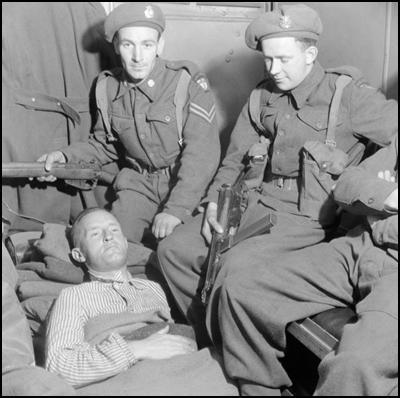
On this day in 1940, 19 German aircraft shot down above England during the Battle of Britain. Day and night attacks on the capital over the next week, later described as the Blitz, seemed to confirm to the Luffwaffe that Fighter Command's collapse was imminent. Hitler now became convinced that the RAF no longer controlled British airspace and decided that the invasion of Britain should take place on 17th September. However, the relaxation of pressure on Fighter Command's airfields and production centres at this crucial moment quickly enabled it to regain its vigour. This was revealed to the Luftwaffe on 15th September, when heavy losses were inflicted on another mass daylight operation against London and German airmen began to doubt that they could after all remove the threat of the RAF.
Operation Sea Lion was finally cancelled in January 1941. Field Marshal Gerd von Rundstedt later recalled: "The military reasons for its cancellation were various. The German Navy would have had to control the North Sea as well as the Channel, and was not strong enough to do so. The German Air Force was not sufficient to protect the sea crossing on its own. While the leading part of the forces might have landed, there was the danger that they might be cut off from supplies and reinforcements."
A. J. P. Taylor has pointed out that: "Pilots on both sides naturally exaggerated their claims in the heat of combat. The British claimed to have destroyed 2,698 German areoplanes during the Battle of Britain and actually destroyed 1,733. (35) There were 2,353 men from Great Britain and 574 from overseas who were members of the air crews that took part in the Battle of Britain. An estimated 544 were killed and a further 791 lost their lives in the course of their duties before the war came to an end.
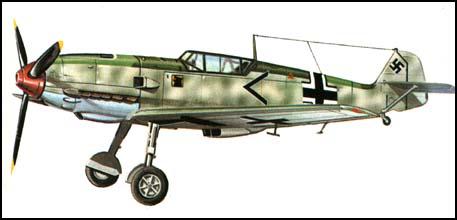
On this day in 1947 the Central Intelligence Agency officially comes into existence after being established by President Harry S. Truman in July. The Office of Strategic Services provided a model for the Central Intelligence Agency (CIA) that was established in September 1947. Others have suggested that it was the British Security Coordination (BSC) that was really the important organisation. According to Joseph C. Goulden several of the "old boys" who were around for the founding of the CIA like repeating a mantra, “The Brits taught us everything we know - but by no means did they teach us everything that they know.” The role of the CIA was to evaluate intelligence reports and coordinate the intelligence activities of the various government departments in the interest of national security. Frank Wisner remained concerned about the spread of communism and began lobbying for a new intelligence agency. He gained support for this from James Forrestal, the Defense Secretary. In June 1948, George Kennan, drafted a directive that resulted in the Office of Special Projects.
Wisner was told to create an organization that concentrated on "propaganda, economic warfare; preventive direct action, including sabotage, anti-sabotage, demolition and evacuation measures; subversion against hostile states, including assistance to underground resistance groups, and support of indigenous anti-Communist elements in threatened countries of the free world". Thomas Braden later recalled: "Wisner brought in a whole load of fascists after the war, some really nasty people. He could do that, because he was powerful. Harrison E. Salisbury commented: "He (Wisner) was the key to a great many things, a brilliant, compulsive man, of enormous charm, imagination, and conviction that anything, anything could be achieved and that he could achieve it."
Later that year Frank Wisner established Operation Mockingbird, a program to influence the American media. Wisner recruited Philip Graham (Washington Post) to run the project within the industry. According to Deborah Davis (Katharine the Great): "By the early 1950s, Wisner 'owned' respected members of the New York Times, Newsweek, CBS and other communications vehicles."
Rear Admiral Sidney W. Souers, who was the Deputy Chief of Naval Intelligence, was appointed the first Director of Central Intelligence. Walter Bedell Smith took over the post in 1950 and held it until being replaced by Allen W. Dulles in 1953.
According to Deborah Davis, the CIA operative Cord Meyer became the "principal operative" of Operation Mockingbird. One of the most important journalists under the control of Mockingbird was Joseph Alsop, whose articles appeared in over 300 different newspapers. Other journalists willing to promote the views of the CIA included Stewart Alsop (New York Herald Tribune), Ben Bradlee (Newsweek), James Reston (New York Times), Charles Douglas Jackson (Time Magazine), Walter Pincus (Washington Post), William C. Baggs (Miami News), Herb Gold (Miami News) and Charles Bartlett (Chattanooga Times). According to Nina Burleigh (A Very Private Woman) these journalists sometimes wrote articles that were commissioned by Frank Wisner. The CIA also provided them with classified information to help them with their work.
After 1953 the network was overseen by Allen W. Dulles, director of the Central Intelligence Agency. By this time Operation Mockingbird had a major influence over 25 newspapers and wire agencies. These organizations were run by people with well-known right-wing views such as William Paley (CBS), Henry Luce (Time Magazine and Life Magazine), Arthur Hays Sulzberger (New York Times), Alfred Friendly (managing editor of the Washington Post), Jerry O'Leary (Washington Star), Hal Hendrix (Miami News), Barry Bingham Sr., (Louisville Courier-Journal), James Copley (Copley News Services) and Joseph Harrison (Christian Science Monitor).
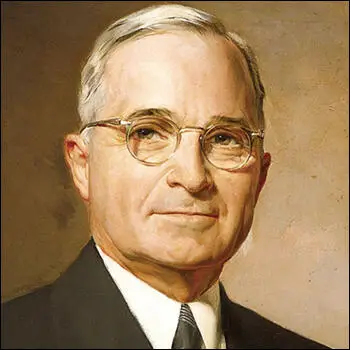
On this day in 1961 Dag Hammarskjold is killed in an airplane crash in the Congo Republic. In 1953 Hammarskjold was elected Secretary General of the United Nations. I this post he was involved in negotiating the release of American soldiers captured by the Chinese in the Korean War. Hammarskjold refused to submit to McCarthyism and rejected the idea put forward by John Foster Dulles that the Federal Bureau of Investigation should investigate the staff of the UN.
He was also involved in what he called "preventive diplomacy". This included attempts to solve the disputes in Palestine, Vietnam and Egypt. During the Suez Canal Crisis Hammarskjold managed to persuade the United Nations Security Council to condemn the actions of Israel, France and Britain.
In July 1960 Hammarskjold became involved in attempting to solve the civil war in the Congo. He arranged for a UN peace-keeping force to be sent to the region but in September 1961 fighting erupted between Katanga troops and the noncombatant forces of the UN. In an effort to secure a cease-fire he arranged to meet President Moise Tshombe. On 17th September 1961 Dag Hammarskjold was killed when his plane crashed close to Ndola airport. Hammarskjold's journal, Markings, was published in 1963.
